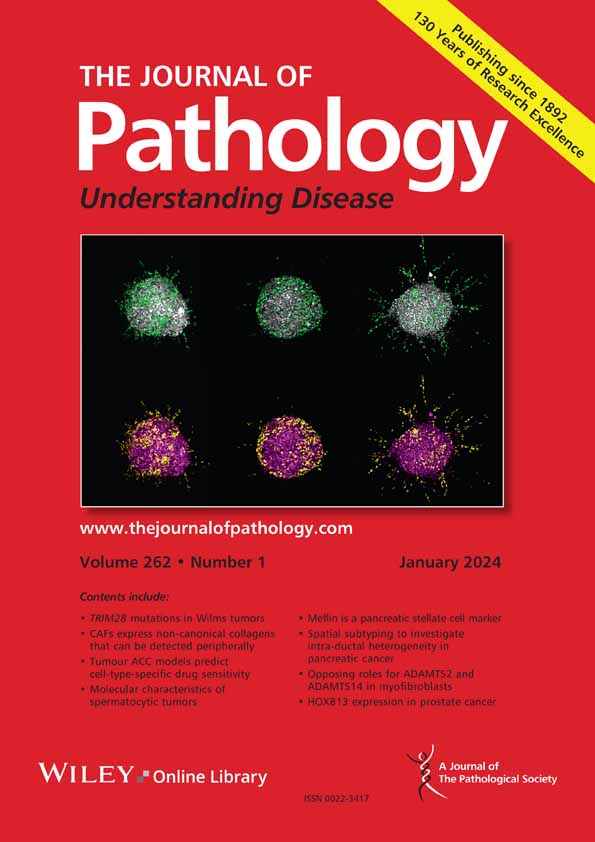Julien Calderaro, Helen Morement, Frédérique Penault-Llorca, Stephen Gilbert, Jakob Nikolas Kather
下载PDF
{"title":"自制人工智能在诊断病理学中的应用。","authors":"Julien Calderaro, Helen Morement, Frédérique Penault-Llorca, Stephen Gilbert, Jakob Nikolas Kather","doi":"10.1002/path.6438","DOIUrl":null,"url":null,"abstract":"<p>Artificial intelligence (AI) methods for digital pathology have tremendous potential to improve cancer diagnostics, biomarkers, and ultimately patient care. These AI methods, if marketed and sold, require authorisation or clearance as <i>in vitro</i> diagnostic (IVD) devices by regulatory bodies like the Food and Drug Administration (FDA) in the USA or Notified Bodies in the European Union (EU). Many AI tools for digital pathology are unlikely to be commercially viable and taken up by commercial entities ready to navigate these complex and costly processes. However, a longstanding quality framework already exists that allows for lab-developed tests, colloquially known as ‘homebrew’ tests, that are locally validated and performed under the responsibility and oversight of the pathologist. Here we argue for advancing homebrew AI systems within this existing framework to enhance patients' access to supportive digital diagnostic tools. We outline how homebrew AI models are currently permitted under regulatory provisions in the USA and the European Union, how a new US FDA rule may effectively regulate them out of existence, and propose steps to facilitate the safe and effective integration of homebrew AI models in pathology practice. © 2025 The Author(s). <i>The Journal of Pathology</i> published by John Wiley & Sons Ltd on behalf of The Pathological Society of Great Britain and Ireland.</p>","PeriodicalId":232,"journal":{"name":"The Journal of Pathology","volume":"266 4-5","pages":"390-394"},"PeriodicalIF":5.2000,"publicationDate":"2025-07-04","publicationTypes":"Journal Article","fieldsOfStudy":null,"isOpenAccess":false,"openAccessPdf":"https://onlinelibrary.wiley.com/doi/epdf/10.1002/path.6438","citationCount":"0","resultStr":"{\"title\":\"The case for homebrew AI in diagnostic pathology\",\"authors\":\"Julien Calderaro, Helen Morement, Frédérique Penault-Llorca, Stephen Gilbert, Jakob Nikolas Kather\",\"doi\":\"10.1002/path.6438\",\"DOIUrl\":null,\"url\":null,\"abstract\":\"<p>Artificial intelligence (AI) methods for digital pathology have tremendous potential to improve cancer diagnostics, biomarkers, and ultimately patient care. These AI methods, if marketed and sold, require authorisation or clearance as <i>in vitro</i> diagnostic (IVD) devices by regulatory bodies like the Food and Drug Administration (FDA) in the USA or Notified Bodies in the European Union (EU). Many AI tools for digital pathology are unlikely to be commercially viable and taken up by commercial entities ready to navigate these complex and costly processes. However, a longstanding quality framework already exists that allows for lab-developed tests, colloquially known as ‘homebrew’ tests, that are locally validated and performed under the responsibility and oversight of the pathologist. Here we argue for advancing homebrew AI systems within this existing framework to enhance patients' access to supportive digital diagnostic tools. We outline how homebrew AI models are currently permitted under regulatory provisions in the USA and the European Union, how a new US FDA rule may effectively regulate them out of existence, and propose steps to facilitate the safe and effective integration of homebrew AI models in pathology practice. © 2025 The Author(s). <i>The Journal of Pathology</i> published by John Wiley & Sons Ltd on behalf of The Pathological Society of Great Britain and Ireland.</p>\",\"PeriodicalId\":232,\"journal\":{\"name\":\"The Journal of Pathology\",\"volume\":\"266 4-5\",\"pages\":\"390-394\"},\"PeriodicalIF\":5.2000,\"publicationDate\":\"2025-07-04\",\"publicationTypes\":\"Journal Article\",\"fieldsOfStudy\":null,\"isOpenAccess\":false,\"openAccessPdf\":\"https://onlinelibrary.wiley.com/doi/epdf/10.1002/path.6438\",\"citationCount\":\"0\",\"resultStr\":null,\"platform\":\"Semanticscholar\",\"paperid\":null,\"PeriodicalName\":\"The Journal of Pathology\",\"FirstCategoryId\":\"3\",\"ListUrlMain\":\"https://pathsocjournals.onlinelibrary.wiley.com/doi/10.1002/path.6438\",\"RegionNum\":2,\"RegionCategory\":\"医学\",\"ArticlePicture\":[],\"TitleCN\":null,\"AbstractTextCN\":null,\"PMCID\":null,\"EPubDate\":\"\",\"PubModel\":\"\",\"JCR\":\"Q1\",\"JCRName\":\"ONCOLOGY\",\"Score\":null,\"Total\":0}","platform":"Semanticscholar","paperid":null,"PeriodicalName":"The Journal of Pathology","FirstCategoryId":"3","ListUrlMain":"https://pathsocjournals.onlinelibrary.wiley.com/doi/10.1002/path.6438","RegionNum":2,"RegionCategory":"医学","ArticlePicture":[],"TitleCN":null,"AbstractTextCN":null,"PMCID":null,"EPubDate":"","PubModel":"","JCR":"Q1","JCRName":"ONCOLOGY","Score":null,"Total":0}
引用次数: 0
引用
批量引用



 求助内容:
求助内容: 应助结果提醒方式:
应助结果提醒方式:


